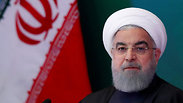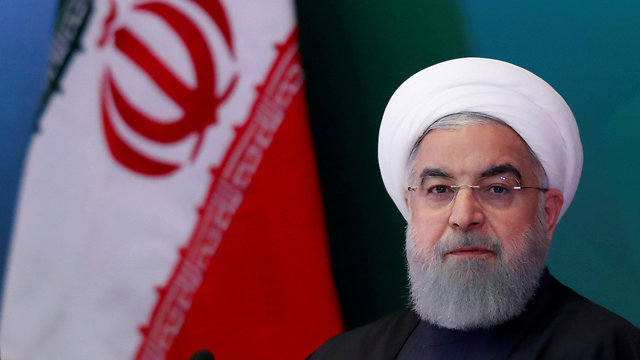

Iran: we don't want 'new tensions' in the Middle East
Europe calls for restraint after Israel strikes in Syria in retaliation for rockets launched by Iran into Israel from Syria territory; Iran's President says he doesn't want 'new tensions' in the Middle East; Bahrain backs Israel's right to 'defend itself' after the strikes.
All eyes will be on any fresh military activity Friday after Israel carried out widespread strikes against what it said were Iranian targets in Syria on Thursday in response to rocket fire towards its forces launched by Iran.
The reported exchange of fire came after weeks of rising tensions and followed US President Donald Trump's decision Tuesday to withdraw from the landmark 2015 Iran nuclear deal, a move Israel had long sought.
The strike led to calls for calm from Russia, France, Germany and Britain and the European Union, while the United States put the blame squarely on Iran and stressed Israel's right to "self-defense".
Germany and Britain joined the United States in denouncing the rocket fire towards the Golan Heights they also said was carried out by Iran, while France reiterated its "unwavering support for Israel's security".
Israeli Prime Minister Benjamin Netanyahu said Iran had "crossed a red line" and that the resulting bombardment against targets in Syria "was a consequence."
Iran's President Hassan Rouhani told German Chancellor Angela Merkel in a telephone call that he did not want "new tensions" in the Middle East.
Rouhani did not mention Israel's strikes in Syria, or those against the Golan Heights.
But the chairman of his country's parliamentary committee on foreign affairs, Allaeddine Boroujerdi, condemned the strikes, warning that "Israel has entered a dangerous game".
The Israeli strike in Syria, which a monitor said killed 23 fighters, were one of its largest military operations in recent years and the biggest such assault on Iranian targets, the Israeli military said.
Syria said it was the Israeli strikes that marked a "new phase" of direct involvement in the country's seven-year conflict.
Its army said three people had been killed.
In a rare if not unprecedented move for an Arab country, Bahrain backed Israel's right to "defend itself" after the strikes.
Israel has long warned it will not accept Iran entrenching itself militarily in neighboring Syria, where the Islamic republic is supporting President Bashar Assad's regime in the civil war.
It has been blamed for a series of recent strikes inside Syria that have killed Iranians, though it has not acknowledged those strikes.
The Jewish state says it has conducted dozens of strikes in Syria to stop what it says are advanced arms deliveries to Iran-backed Hezbollah, another key foe of Israel.
Israel had been preparing itself for weeks for possible Iranian retaliation.
Trump's withdrawal from the nuclear deal has added to tensions and led to a new level of uncertainty over how Iran will respond.
















